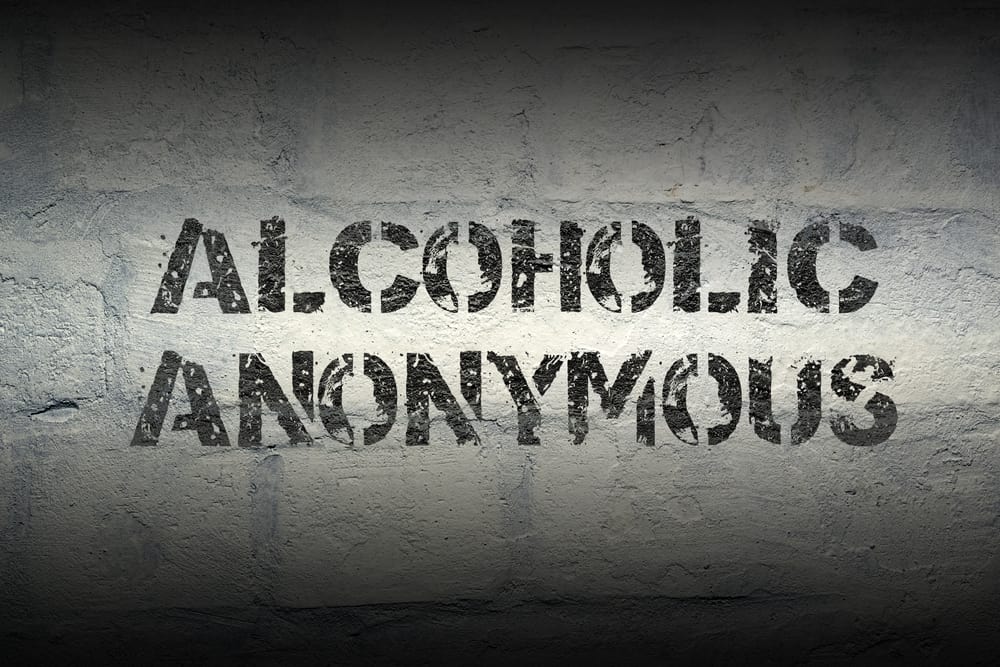Alcoholism is a chronic disease that can be subtle at first before progressing to severe and obsessive alcohol abuse. A chemical dependence on alcohol often leads to various health problems, financial woes, relationship rifts, legal issues, and problems at work or school. Tragically, alcohol misuse contributes to roughly 88,000 fatalities in the U.S. each year1. For many struggling with alcohol use disorder (AUD), proper treatment and ongoing accountability is a matter of life and death.
Here at Northbound Treatment, we provide a range of recovery programs for people struggling with alcohol addiction, including detox, inpatient rehabilitation, outpatient treatment, and aftercare services. We also support Alcoholics Anonymous (AA), which is a crucial component of personal recovery for many of our clients. Through its signature, 12 Steps of Alcoholics Anonymous book uses a community-based program to help recovering alcoholics stay clean and navigate a sober lifestyle. Find an AA meeting in your area2.
Al-Anon 12 Steps
The cornerstone of Alcoholics Anonymous is the 12-Step approach to recovery. These twelve concepts were initially published in AA co-founder William G. “Bill W” Wilson’s book, Alcoholics Anonymous: The Story of How Many Thousands of Men and Women Have Recovered from Alcoholism (commonly known as “The Big Book”)3. So, what are the Al-Anon 12 Steps, and what do they mean? Find a detailed breakdown of each step below.
Step 1: We admitted we were powerless over alcohol — that our lives had become unmanageable.
The first step is driven by the acceptance of one’s powerlessness over the addiction. For many individuals, this starts by recognizing that alcoholism is a disease — a disease that can’t be controlled or cured purely by willpower. Additionally, Step 1 accepts that continuous triggers and a preoccupation with alcohol have made life unmanageable.
Step 2: Came to believe that a power greater than ourselves could restore us to sanity.
Step 2 mentions how a higher power may be a critical component of recovery. For some, a higher power means God in a religious sense, while for others, it’s any external force or inspiration that drives sobriety. Many people in AA refer to GOD as an acronym for “good orderly direction.” Whether it’s God, GOD, karma, the greater good, or the universe itself, identifying what “higher power” means to you can help by building a spiritual foundation that guides you through accomplishing the next ten steps.
Step 3: Made a decision to turn our will and our lives over to the care of God as we understood Him.
As with Step 2, the terms “God” and “Him” can be used interchangeably with whatever you’ve identified as your higher power. This step recognizes that since alcoholism can’t be controlled from within, external support is needed to overcome the disease. In other words, it’s accepting outside help.
Step 4: Made a searching and fearless moral inventory of ourselves.
Step 4 is about critically assessing yourself and the consequences of your alcohol abuse to determine the changes that need to be made. As it often identifies how alcoholism can hurt others, this part of the 12 step program can be painful, which is why it calls for fearlessness. This step can also help you redefine your moral compass and make less harmful decisions moving forward.
Step 5: Admitted to God, ourselves, and to another human being the exact nature of our wrongs.
After identifying the harm your alcoholism has caused, Step 5 encourages AA members to admit these wrongdoings both to themselves and to another person. For many, “another human being” is a fellow AA member, a sponsor, or an addiction counselor. Since shame can increase a person’s risk of relapse, unburdening yourself from the guilt of your past behaviors is vital for personal recovery.

Step 6: We are entirely ready to have God remove all these defects of character.
Step 6 is about clearing your conscience from previous actions and behaviors. By calling on inspiration from a higher power, it calls for accepting and learning from past mistakes without letting them define you so that you’re ready to replace old habits with healthy choices.
Step 7: Humbly asked Him to remove our shortcomings.
Step 7 expands on Steps 3 and 6 by embracing the concept of humility. Staying humble can help you from downplaying the effects of your behaviors. Now that you know what they are, you’re ready to allow your higher power to rid you of your shortcomings.
Step 8: Made a list of all persons we had harmed and became willing to make amends to them all.
The next step is relatively straightforward. It calls for alcoholics to identify those who’ve been hurt by their actions and prepare to make things right. This doesn’t necessarily mean making amends with each and every person, but more so about balancing things out by doing good and helping others.
Step 9: Made direct amends to such people wherever possible, except when to do so would injure them or others.
While step 8 doesn’t explicitly encourage recovering alcoholics in addressing those they’ve harmed, Step 9 calls for making “direct amends.” Most individuals interpret this as apologizing to people they’ve hurt (whether in person or otherwise), attempting to make things right, and asking for forgiveness.
The caveat here is that making amends should never create further damage or put someone else in danger, so it’s essential to consider all the circumstances. Also, not everyone may be ready or able to forgive you, so you have to mentally prepare for this outcome and how it may affect your personal progress.
Step 10: Continued to take personal inventory and when we were wrong promptly admitted it.
Step 10 circles back to Step 4 by encouraging alcoholics to continue assessing their previous (or current) destructive behaviors and taking accountability for them. This step of taking personal inventory reinforces your moral compass and keeps you on track with your recovery.
Step 11: Sought through prayer and meditation to improve our conscious contact with God as we understood Him, praying only for knowledge of His will for us and the power to carry that out.
This step builds on the notion of taking guidance from a higher power. With the objective of spiritual growth, you can use this concept to reflect on your progress and refocus your intentions. Step 11 is also about continuing to be humble, which is key to freeing yourself from addiction.
Step 12: Having had a spiritual awakening as the result of these steps, we tried to carry this message to alcoholics and to practice these principles in all our affairs.
The final step for AA is reinforcing the lessons learned throughout the process while delivering the message to others and guiding those in need. Additionally, Step 12 is about implementing each of the twelve concepts into your new sober lifestyle.
Al-Anon 12 Steps
Al-Anon is an organization that supports the families and loved ones of alcoholics. The program adapts the same Alcoholics Anonymous 12 Steps almost word-for-word to help those navigating the ups and downs of their loved one’s addiction5. At meetings, members share their takeaways and lessons learned from implementing the twelve steps. Find an Al-Anon meeting in your area6.
Start Alcohol Treatment Today
If you or someone close to you is struggling with alcohol abuse disorder, we’d love to hear from you. Northbound Treatment provides fully integrated rehab programs with compassionate care at all levels. Our addiction treatment programs are encouraging, enlightening, and effective.
Northbound is committed to offering high-quality care to people from all walks of life. We’re an in-network healthcare provider for most insurance plans, and we have flexible payment options. Don’t delay alcohol treatment. Call us at (888) 978-8649 to get started.
External sources:
- https://www.aa.org/pages/en_US/meeting-guide
- https://www.alcohol.org/alcoholics-anonymous/
- https://www.aa.org/assets/en_US/smf-121_en.pdf
- https://al-anon.org/for-members/the-legacies/the-twelve-steps/
- https://al-anon.org/al-anon-meetings/
Author
-

President, CEO & Founder at Northbound Treatment Network
Paul Alexander is the CEO, President & Founder of Northbound Treatment Network in Newport Beach, California. He believes wholeheartedly in transformational leadership, organizational health and effective, fully integrated substance use disorder and mental health treatment. With over 27 years of experience in behavioral healthcare, Paul has extensive knowledge of “in vivo” treatment modalities, clinical development, operations, strategy, marketing and financial planning. He has been widely recognized for his development of collegiate-based residential treatment programs for students in recovery and authored a research study at The University of California confirming this modality’s effectiveness.
Paul’s comprehensive professional experience, willingness to innovate, and emphasis on organizational health are vital factors in Northbound’s continued success. Paul received his Certified Addiction Treatment Specialist training at Saddleback College in Mission Viejo, CA, and was awarded Outstanding Alumni Service Award in 2002. Paul holds a Bachelor of Arts degree in Criminology, Law and Society, Summa Cum Laude, from University of California, Irvine, and a Juris Doctorate degree from Loyola Law School of Los Angeles. Paul currently serves on The National Association of Addiction Treatment Providers (NAATP) board. In addition, he serves on The Family Recovery Foundation board and The CarePossible board in Orange County; both organizations are committed to raising funds for family recovery and treatment for former military personnel. Paul is in recovery himself and lives in Orange County with his wife Silvana and his two young sons, Noah and Dean.







